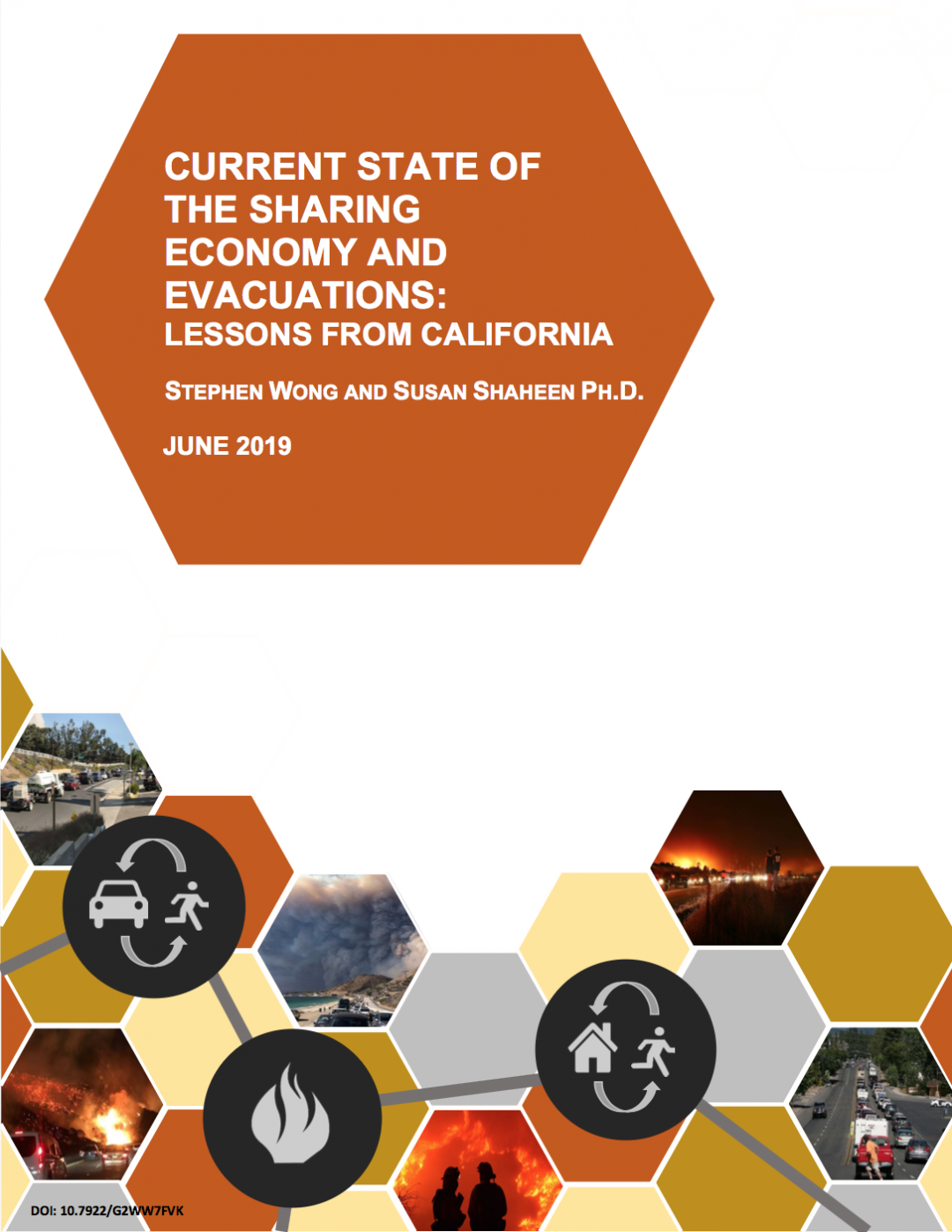Authors: Stephen Wong and Susan Shaheen, PhD
Date: June 2019
Abstract:
In many evacuations including wildfire evacuations, public agencies often do not have enough resources to evacuate and shelter all citizens. Consequently, we propose that the sharing economy, through private companies and/or private citizens, could be leveraged in disasters for transportation and sheltering resources. To assess this feasibility, we distributed surveys to individuals impacted by three major wildfires in California: 1) the 2017 October Northern California Wildfires (n=79), 2) the 2017 December Southern California Wildfires (n=226), and 3) the 2018 Carr Wildfire (n=284). Using these data, we find that private citizens are moderately to highly likely to share transportation and sheltering resources in future disasters, but numerous reservations persist about sharing. We also find significant spare capacity in evacuating vehicles and potential homes. To supplement this work, we also conducted four focus groups (n=37) of vulnerable populations to determine the benefits and limitations of a sharing economy strategy in terms of equity. Groups included low-income (2017 December Southern California Wildfires), older adult (2017 October Northern California Wildfires), individuals with disabilities (2017 October Northern California Wildfires), and Spanish-speaking (2018 Mendocino Complex Wildfire). We find that while severe equity limitations exist, groups were able to develop several recommendations for successfully leveraging sharing economy resources for the general population and their specific vulnerable group. We conclude with several local agency and statewide recommendations for building a sharing economy framework for California to prepare for future evacuations.
View PDF.

